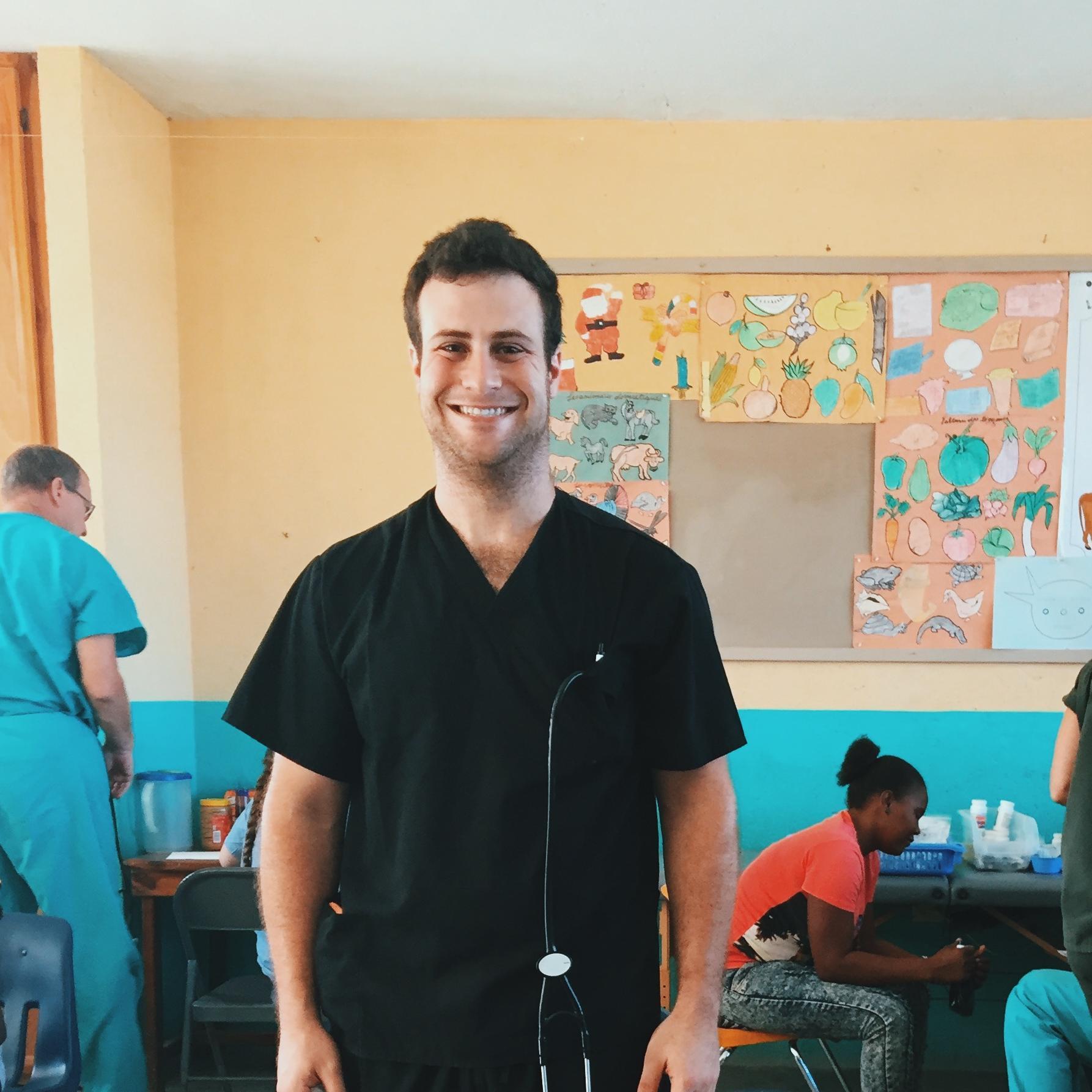“We Take Basic Things for Granted”
OMSII Maxwell Horowitz Reflects on Haiti Mission

For the two American doctors, their Haitian counterparts and Touro College of Medicine (TouroCOM) Harlem medical student Maxwell Horowitz, there was little they could do for the suffering woman. The cancer in her abdomen had metastasized with physical properties, emerging as a white mass out of her stomach.
“We couldn’t treat her,” recalled Horowitz, who spent a week in Haiti running a volunteer medical clinic with Hands Together of the Palm Beaches in June. “All we could do was offer her painkillers and suggest she go to the main hospital,” a journey of several hundred kilometers. Unfortunately, the reality of medical care in Haiti seemed to be that if the patient could not afford the treatment, they didn’t receive it.
“These people didn’t have money,” said Horowitz who together with his colleagues set up their clinic in a church in the city of Jean Denis, located in the region of Artibonite. “They lived in concrete or mud huts and bathed in the river. They didn’t have access to clean drinking water.”
The woman was lucky though; her three children talked about combining their income to ensure she received treatment. The experience gave Horowitz a newfound appreciation for the American healthcare system, flaws and all.
“While a lot of things in our healthcare system are up in the air, it’s important to remember that there are a lot of basic things we take for granted,” said Horowitz.
Growing up, Horowitz’s family instilled in him the Jewish value of Tikkun Olam, repairing the world. Throughout his high school and college career, Hurwitz volunteered for a variety of causes including Duke Engage, where he spent ten weeks running a culinary camp for children in a poverty-stricken area of New Orleans. Looking for a medical school after completing a Masters in Medical Physiology at Case Western University, Horowitz read about TouroCOM’s mission of helping the underserved.
“TouroCOM’s mission really spoke to me,” explained Horowitz. Horowitz discovered Hands Together of the Palm Beaches, an organization that regularly visits and provides medical treatment to the indigent in Haiti, while searching for a way to volunteer after his first year of medical school.
In the week that Horowitz was there, the team managed to see close to 2000 patients. The doctors distributed supplies and medications for malaria, worms and other common ailments including hypertension, the latter of which Horowitz said was prevalent in the area. The most common causes of hypertension were sugary drinks like Coca Cola.
“Soda is cheaper than clean water,” said Horowitz. “You can have a bottle of soda that has 56 grams of sugar in it.”
One patient had an alarming blood pressure of 220/160. For the severe cases, the doctors distributed Clonidine, an ACE inhibitor and a beta blocker. In most situations, Horowitz and the doctors advised a change in lifestyle after asking patients about their habits.
“We can only give advice,” stated Horowitz. “We can’t monitor them but hopefully our presence and care made them understand how necessary these changes are.”
For the people living in the remote village, the next time they would see a doctor would be when the clinic returned in six months.
“It was an eye-opening experience,” recalled Horowitz, who will be spending the next few weeks performing research in neurosurgery at Mt. Sinai Hospital. “It reminded me of why I got into medicine. It reinvigorated my passion to treat people and help them in any way I can.”

